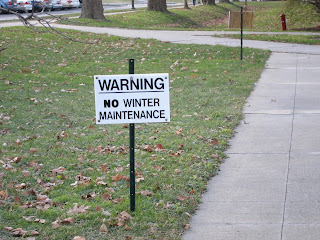My final blog post for 2011 is: What is a New York CD (conditional discharge)?
I am reminded of a favorite Dr. Seuss book, “Oh, The Places You Will Go” when I think on NY CDs. This is because I believe that New York Criminal court can be an “adventure” of sorts. I recently had someone send me an email asking me what a CD was, and then I checked some message boards. There is plenty of misinformation out on the internet so with this in mind I aspire to bring some light on the subject of CDs.
First, what is a C.D. NOT:
- A CD is NOT a dismissal of the charges. If the charges are Dismissed there is NO sentencing.
- A CD is NOT an expungement of the charges. NYS has NO expungement, it does NOT exist.
- A CD is NOT related to whether or not you have been convicted of a crime. You are considered convicted of a crime whether you plead guilty to a misdemeanor or are found guilty after a trial for a misdemeanor. Violations are considered offenses but are NOT classified as CRIMES. This is a source of endless confusion. Sometimes called Offenses and violations but "may or may not" be New York State crimes (misdemeanors and felonies) but are they "criminal" convictions. Remember to always consider to that state (New York) not to compare state to state.
Basically a CD is a form (type) of sentencing by a Court (Judge).
It is merely a sentencing option.
These are the options at or for sentencing (assuming a plea or a finding of guilt to something):
- There is an Unconditional Discharge. You have NO conditions to discharge your obligation to the Court. These are rarely given.
- There is a term of jail (incarceration). Whether for a term of weekends, days, weeks, or months.
- There is a term of probation. You get a probation officer. You must submit to whatever they direct you to do or not do for a period of time. Misdemeanor probation is for three years.
- There is the CD (conditional discharge). I say “the” CD because there is only one type. You have certain (specific) conditions aka obligations to meet to satisfy the Court. The main condition is No new crimes (no new arrests) for a period of time. This is generally for one year. If you violate this main condition then you will be re-sentenced for the offense you plead guilty to, not the original charges. New conditions can also be imposed, such as drug/alcohol counseling, jail, and/or probation.
NEW YORK STATE PENAL LAW
§ 65.05 Sentence of conditional discharge. (Highlights and additions mine.)
1. Criteria. (a) Except as otherwise required by section 60.05, the
court may (option) impose (give) a sentence of conditional discharge for an offense if
the court, having regard to the nature and circumstances of the offense
and to the history, character and condition (no priors, no aggravators) of the defendant, is of the
opinion that neither the public interest nor the ends of justice would
be served by a sentence of imprisonment and that probation supervision
is not appropriate.
(b) When a sentence of conditional discharge is imposed for a felony,
the court shall set forth in the record the reasons for its action.
2. Sentence. Except to the extent authorized by paragraph (d) of
subdivision two of section 60.01 of this chapter, when the court imposes
a sentence of conditional discharge the defendant shall be released with
respect to the conviction for which the sentence is imposed without
imprisonment or probation supervision but subject, during the period of
conditional discharge, to such conditions (obligations) as the court may determine.
The court shall impose the period of conditional discharge authorized by
subdivision three of this section and shall specify, in accordance with
section 65.10, the conditions to be complied with. If a defendant is
sentenced pursuant to paragraph (e) of subdivision two of section 65.10
of this chapter, the court shall require the administrator of the
program to provide written notice to the court of any violation of
program participation by the defendant. The court may modify or enlarge
the conditions or, if (the Big If) the defendant commits an additional offense or
violates a condition, revoke the sentence at any time prior to the
expiration or termination of the period of conditional discharge.
3. Periods of conditional discharge. Unless terminated sooner in
accordance with the criminal procedure law, the period of conditional
discharge shall be as follows:
(a) Three years in the case of a felony; and
(b) One year in the case of a misdemeanor or a violation. (could be longer)
Where the court has required, as a condition of the sentence, that the
defendant make restitution of the fruits of his or her offense or make
reparation for the loss caused thereby and such condition has not been
satisfied, the court, at any time prior to the expiration or termination
of the period of conditional discharge, may impose an additional period.
The length of the additional period shall be fixed by the court at the
time it is imposed and shall not be more than two years. All of the
incidents of the original sentence, including the authority of the court
to modify or enlarge the conditions, shall continue to apply during such
additional period.
Lawrence Newman, D.C., J.D.
504 North Aurora Street
Ithaca, NY 14850
607-229-5184
newman.lawrence@gmail.com
ithacadwi.com
















